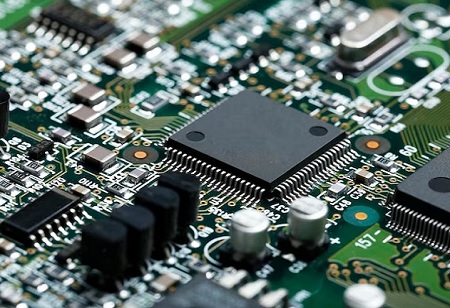
The PLI scheme's Empowered Committee has approved a distribution of Rs 1,000 crore to electronics sector beneficiaries. Out of claims totaling Rs 3,400 crore received under the scheme, which aims to increase local manufacturing, foster employment growth, and encourage exports, the government disbursed Rs 2,900 crore through March 2023.
Disbursements of Rs 1,000 crore under the PLI programme for the Electronics Sector were approved at the most recent committee meeting. It would take a few more days before the recipient companies would really receive their funds, the official said. The first payment for this fiscal year would be this one. The plan, which will invest Rs 1.97 lakh crore, was announced in 2021 and will cover 14 industries, including large-scale electronic manufacturing, white goods, textiles, medical device manufacturing, automobile manufacturing, specialty steel, food product manufacturing, high-efficiency solar PV modules, advanced chemistry cell batteries, drone manufacturing, and pharmaceuticals.
In industries like electronics, pharmaceuticals, and medical gadgets, the system is succeeding. The PLI scheme had approved up to 32 beneficiaries for large-scale electronics manufacturing, including the production of mobile phones and specific electronic components. The relevant ministries or departments that are carrying out the scheme give their proposal for the payment of rewards.
The Ministry of Electronics and Information Technology, NITI Aayog, the Department for Promotion of Industry and Internal Trade, and representatives from the Departments of Expenditure, Department of Revenue, Department of Economic Affairs, and Office of DGFT (Directorate General of Foreign Trade) all participate in the Empowered Committee, which is responsible for considering the proposal. The committee makes recommendations for the PLI scheme's incentive payment to the chosen beneficiary.
The relevant authorities are looking at course corrections in the scheme in sectors where PLI distribution is low or if enterprises are unable to satisfy their performance requirements. Recently, high-level review meetings have been convened to assess the scheme's development.
Another official indicated optimism for a quick pick-up in the disbursements. PLI performance is strong in the large-scale electronics manufacturing, pharmaceutical, food processing, and white goods industries. High-efficiency solar PV modules, advanced chemistry cell (ACC) batteries, textile goods, and specialty steel are some industries that are not doing well.
We use cookies to ensure you get the best experience on our website. Read more...